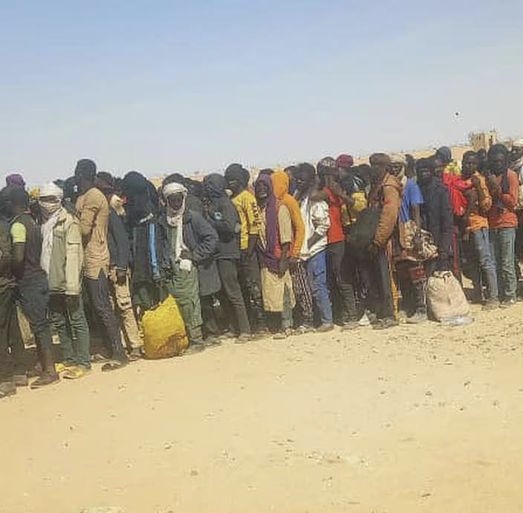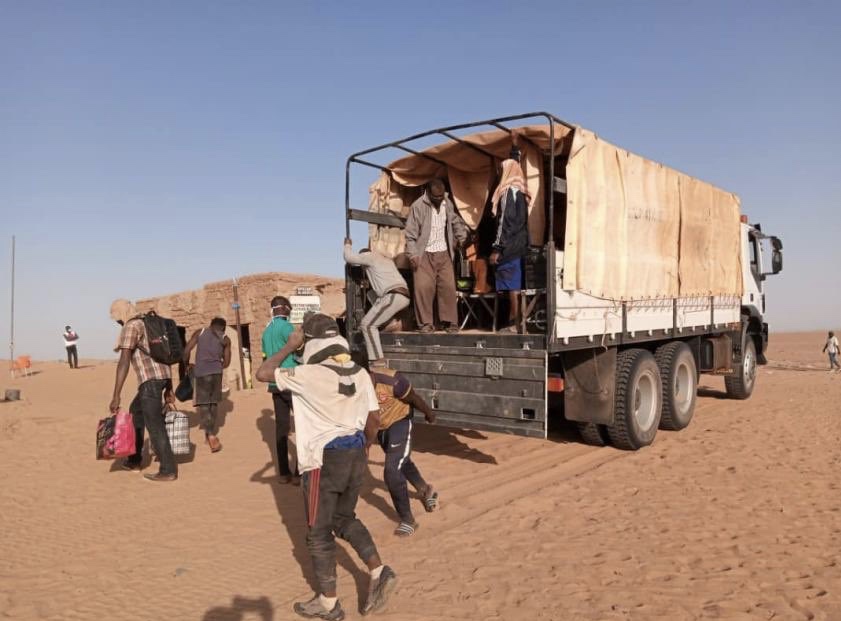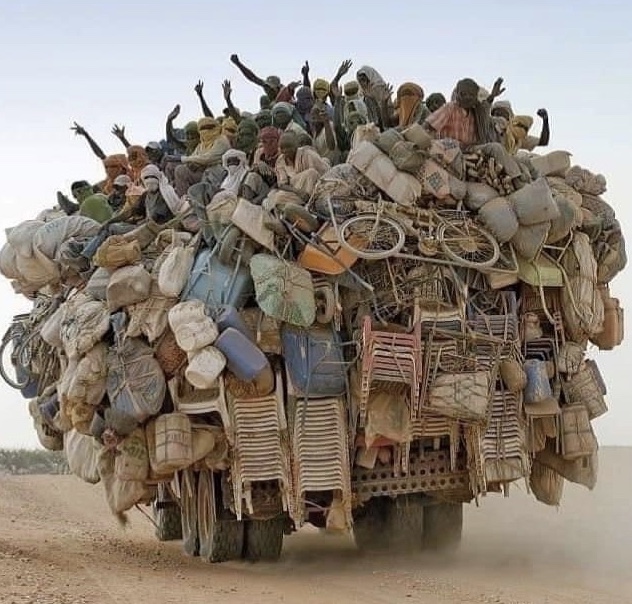The new military government in Niger has revoked a highly controversial migration law introduced in Niger at the behest of the European Union in 2015 – during the peak of Europe’s mass migration crisis. ‘Law 36-2015’, as it was known, has been the subject of huge criticism by human rights experts, civil society campaigners and analysts, who argued that the law effectively shut down one of the only safe routes for migrants travelling north from Agadez through Libya and finally into Algeria on the last leg to Europe. Migrants using the tried and tested safe route, were suddenly subject to criminalisation. Large numbers of arrests followed and sentences of up to 5 years of imprisonment were handed out – mostly to foreign smugglers who had limited influence on the corrupt legal system.

Niger became the new migration hub
Niger became a ‘new migration hub’, which established itself as a revolving door for thousands of migrants being returned to their countries.
Whilst there was a reduction in trafficking, the new law ensured that smuggling operations were driven underground and became significantly more dangerous. The UN Human Rights office declared that the 36-2015 provisions:
‘…led migrants to seek increasingly dangerous migratory routes, leading to increased risks of human rights violations’
Smuggling gangs consequently became more organised and the law spawned a more professional smuggling network. Whilst Europe was able to boast a drop in migrant trafficking, the numbers of migrant disappearances and deaths shot up dramatically – with hundreds of migrants finding themselves simply deserted without food and water in the deserts of North African states such as Libya.

The new military government also announced that all current convictions under the law would be cancelled, in what has been portrayed as one of the last vestiges of colonial brutality and control. This revocation has been seen as further underlining Niger’s new government’s credentials as cutting all ties with France and Europe, following the ousting of former President Bazoum in July.
The leader of Niger’s new military government, General Abdourahmane Tchiani, announced:
‘The convictions pronounced pursuant to said law and their effects shall be cancelled’
A subsequent circular was published which stated that all those convicted under the law would be considered for release by the Ministry of Justice, Ibrahim Jean Etienne.
The dramatically increased risks to the lives of migrants seemed to matter little to the European sponsors of the former regime, who had effectively bribed the cash strapped government of Niger with billions of Euros. An important side effect of the shutting down of the centuries old safe route was an immediate siege on the hospitality economy, which had built up over 100s of years. The restaurants, shops and short-term accommodation establishments on route, became suddenly transformed into the relics of a string of ghost towns.
An economic catastrophe for northern Niger
Sahel specialist and regular analyst at the International Crisis Group (ICG), Hannah Rae Armstrong described the law as:
‘an economic catastrophe for northern Niger at a time of extreme regional vulnerability, decimating a migrant transport industry that sustained much of the remote, neglected region and that was generally well-regulated for migrants to do the dangerous desert crossing, with security escorts and state-licensed drivers’
She posted a comment on her online Twitter account on 26th November, which indicated her support for the recent abrogation. It read:
This nightmare for Europe is a smart and good move for Niger and the subregion. Managed well, it could really help ease strain between Niamey and Agadez’
Analysts, specialists and the majority of the population of the north have welcomed the cancellation of the law, which they believe has been directly responsible for a dramatic increase in poverty in the region over the last 8 years.
European Union and member states accused of being responsible for refugee deaths in the Mediterranean
The ‘Alarm-Phone-Initiative’ or ‘Hotline for boatpeople in distress’ is a refugee rescue organisation, with volunteers from Europe, Tunisia and Morocco. They have consistently publicly accused the European Union and its member states of being responsible for refugee deaths in the Mediterranean. One of its principal coordinators, Azizou Chehou, responded to news of the abrogation, by saying:
‘This decision is to be applauded since freedom of movement has been recovered through the order. We wanted to point out the injustice imposed on sub-Saharan citizens not only in their desire to reach destinations but also in damaging the circular migration in ECOWAS space for the sake of another geographic space of the European Union’


















